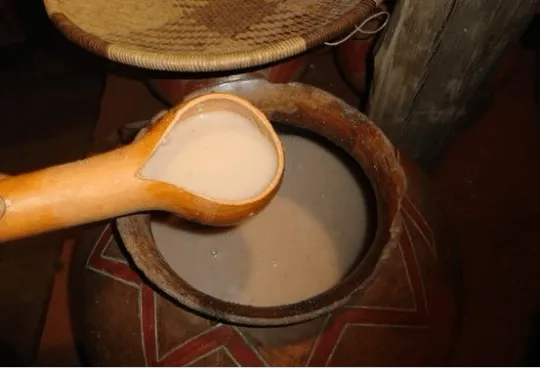The Real Truth About Alcohol
By:
Noluvuyo Mpakathi
On
11/10/2024Reading time:
4 min
Summary:
Alcohol has always been a big part of cultures all over the world, and Africa is definitely no exception. The continent has a wide variety of alcoholic drinks, from local brews to imported liquors, that show off its rich cultural heritage. But the relationship between alcohol and African societies is actually pretty complicated, involving history, social norms, and health issues. In this article, we're going to take a closer look at alcohol in Africa, uncovering some lesser-known facts, cultural traditions, and the bigger picture of alcohol consumption.
Back in the day, before colonization, many African communities made their own alcoholic drinks using ingredients they had on hand. For example, beers made from sorghum and millet were popular in places like East Africa and West Africa. These drinks weren't just for fun, they were also important for social gatherings and rituals. In some cultures, traditional beer is a must-have at events like weddings, funerals, and agricultural ceremonies.

Umqombothi: African Beer
Traditional Beverages
Did you know that in many African cultures, making alcohol is a group effort? The whole community gets involved, making and sharing drinks together. It's a way to strengthen social ties and celebrate cultural identity.
When European colonizers came to Africa, they changed the alcohol scene big time. They took over making and selling alcohol, bringing in new drinks and making money off locals. This switch messed with traditions and caused more alcohol-related problems in communities.
Take Angola, for instance. The Portuguese rulers pushed beer-making to make cash, which led to more drinking and a complicated relationship with alcohol that still sticks around today.
Making and selling alcohol can be a big deal for African countries. Places like South Africa and Kenya rely on the booze industry for jobs and tax money. But there's a downside - more alcohol means more health issues and strains on healthcare systems.
While having a few drinks might not be too bad for you, going overboard with alcohol can be a real problem in a lot of African countries. The World Health Organization (WHO) says that drinking too much can lead to things like car accidents, liver issues, and diseases.
One thing that doesn't get talked about enough is all the homemade booze that's floating around. Even though these drinks are a big part of the culture, they can be dangerous. Sometimes they have harmful stuff in them or they're made in really sketchy conditions. There have been cases where people got seriously sick or even died from drinking contaminated alcohol in different African countries.
Alcohol is also tied up with a bunch of social problems, like violence and abuse, in a lot of African communities. The NIAAA says that a big chunk of violent crimes involve alcohol. In places like Nigeria, mixing booze with all the stress going on can make things even worse, especially in areas dealing with conflicts or money troubles.
One crazy example happened in South Africa back in 2010. A bunch of taxi drivers in Pretoria got into a huge fight fueled by alcohol, and it ended with a bunch of people dead.


Many African governments are stepping up their efforts to address the challenges associated with alcohol consumption. In Uganda, for instance, new laws have been put in place to regulate the sale of alcohol, especially to minors, as part of a larger public health campaign. Similarly, in Namibia, there are programs aimed at encouraging responsible drinking and reducing alcohol-related harm.
DRINK RESPONSIBLY THIS FESTIVE SEASON
Social movements advocating for decreased alcohol consumption are gaining traction as well. Community health organizations are working hard to educate people about the dangers of excessive drinking and to promote healthier lifestyle choices.
There are some common misconceptions about alcohol in African societies. One of them is the idea that drinking beer or traditional spirits is necessary to show hospitality. While this may be true in some cases, it can create pressure for both hosts and guests to drink more than they should.
Another myth is the link between alcohol and masculinity in many cultures, which can lead to risky drinking behaviors as men feel pressured to drink heavily to prove their strength or status.
The reality is that alcohol in Africa is a complex issue, influenced by cultural traditions, historical changes, and modern challenges. While alcohol plays a role in many traditions and social customs, it's important to recognize the potential for abuse and health risks it poses. By understanding the various factors at play in alcohol consumption in African societies such as history, economics, and social norms, we can work towards promoting moderation and responsible drinking practices. This, in turn, can help create healthier communities across the continent.
Subscribe to our newsletter
Subscribe to our newsletter to get weekly updates direct to your inbox.
